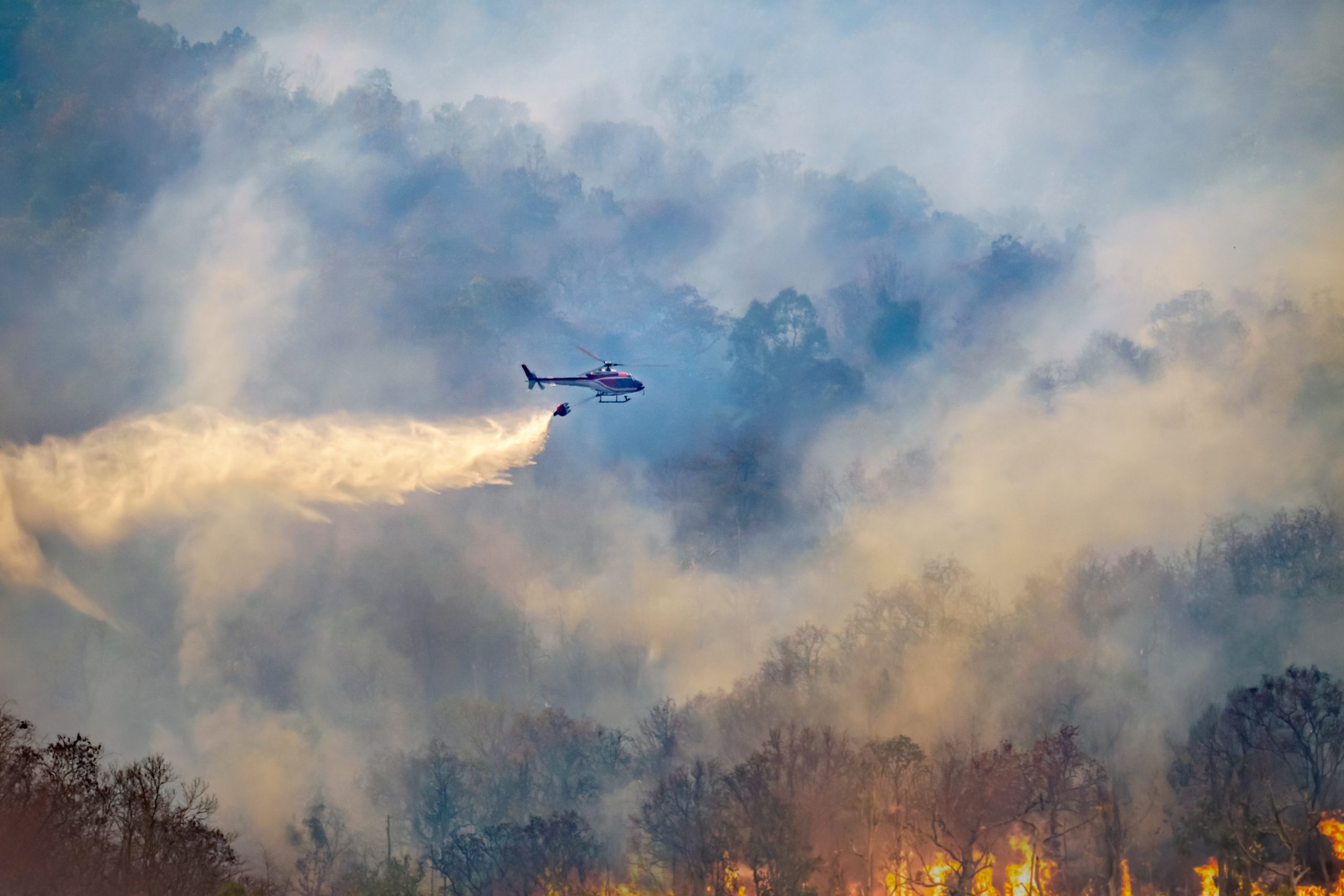The smoky air confirms it: Wildfire season in California has begun. Large, quickly moving wildfires are burning in several counties in the Golden State. And when the smoke is coupled with high temperatures and dryness, air quality declines, which experts say poses a health risk–especially for people with cardiovascular disease or respiratory disease, older adults, children, pregnant women, outdoor workers and people of lower socio-economic status.
According to the American Lung Association, many of the particles in wildfire smoke are no larger than one third the diameter of a hair. The particles are so small they enter and lodge deep in the lungs. Particle pollution triggers asthma attacks, heart attacks and strokes. Studies of children in California found that children who breathed smoky air during wildfires had more coughing, wheezing, bronchitis, colds, and were more likely to have to go to the doctor or to the hospital for respiratory causes, especially from asthma.
Dr. Vinayak Jha, a pulmonologist affiliated with Sutter’s California Pacific Medical Center, agrees children, older people and people with respiratory conditions or illnesses are particularly susceptible to elevated air pollution levels. He recommends at-risk populations take extra precautions to avoid exposure, keep in close contact with their health care providers and avoid exerting themselves.
Dr. Ronn Berrol, an emergency medicine physician at Sutter’s Alta Bates Summit Medical Center in Oakland encourages people with lung conditions such as asthma, emphysema or COPD (Chronic obstructive pulmonary disease) to consider wearing an N95 mask outdoors when pollution levels –especially the tiny particulates and chemicals found in wildfire smoke— increase.
“Homemade cloth masks or surgical masks are not very effective at filtering these harmful substances out, so I recommend an N95 mask for the best protection,” says Dr. Berrol.
“However,” Dr. Berrol says, “N95 masks can be more difficult to breathe through and lead to more overheating when it’s really hot out. So, my advice when air pollution is at unhealthy levels and especially when you are in a sensitive group, is to stay indoors, keep doors and windows closed and use air conditioning and an air purifier, if you have them. I also recommend changing your home’s air filter and running the air conditioner in your car on recirculate so you’re not pulling outside air in.”
To Exercise or Not to Exercise?
 What about exercising or working outdoors in the smoke? Dr. Berrol says outdoor exercising on a day with poor air quality probably causes more harm than the benefits you get from the exercise. He recommends being strategic and consulting a site such as PurpleAir.com which allows users to check air quality down to the neighborhood level before heading out for a run or bike ride in smoky or smoggy conditions. And if you have a choice, delay working outside until conditions are more favorable.
What about exercising or working outdoors in the smoke? Dr. Berrol says outdoor exercising on a day with poor air quality probably causes more harm than the benefits you get from the exercise. He recommends being strategic and consulting a site such as PurpleAir.com which allows users to check air quality down to the neighborhood level before heading out for a run or bike ride in smoky or smoggy conditions. And if you have a choice, delay working outside until conditions are more favorable.
Dr. Berrol says it’s always a good idea to keep hydrated by drinking plenty of water. “When you are well-hydrated, your body can better respond to infectious challenges and the mucous membranes in your nose and lungs are better able to protect your body from environmental insults like smoke particulates.”
And finally, says Dr. Berrol, “If you have asthma, emphysema or other respiratory illness, use your maintenance inhalers as directed by your doctor and be sure to carry your rescue inhaler with you if you do have to leave your home.”
Signs Wildfire Smoke May Be Affecting You
Breathing in wildfire smoke can have both immediate and long-term health impacts. For many people, the symptoms of inhaling particulate matter found in wildfire smoke are similar to what someone with allergies experiences: stinging eyes, scratchy throat, runny nose, coughing, sinus irritation, wheezing and shortness of breath. Breathing in smoke can also cause headaches, fatigue and a fast heartbeat.
Dr. Jha and Dr. Berrol recommend you contact your provider or go to the ER if you experience any of the following symptoms:
- Repeated coughing
- Shortness of breath or difficulty breathing
- Wheezing
- Chest tightness or pain
- Palpitations (a skipped, extra or irregular heartbeat)
- Nausea or unusual fatigue
- Lightheadedness
Note: This content is not intended to be a substitute for professional medical advice, diagnosis or treatment. Always seek the advice of your physician or other qualified health provider with any questions you may have regarding a medical condition. Never disregard professional medical advice or delay in seeking it because of something you have read on this website.





